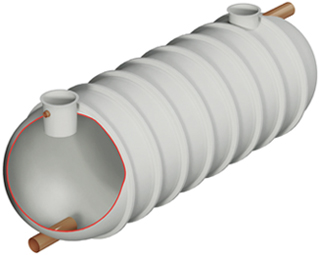The end of one year and the beginning of another is usually a time of celebration, as we say goodbye to another year gone by and look forward to what a new year will bring. But for some, the end of 2013 and the beginning of 2014 brought nothing but misery as many suffered from the devastating floods that wiped out hundreds of homes and businesses throughout Southern areas of the UK.
Statistics from the Met Office revealed that in January 2014, England had experienced the wettest January since records began more than 100 years ago! [1]
So, what’s happened since January? Well, with many homes and businesses still recovering and re-building their lives, there is still the constant threat of more flooding, known as underwater floods.
What is underwater flooding?
When saturated ground cannot contain any more rainwater, underwater flooding occurs. This is where the water begins to seep back up through the ground.
Why does it occur?
When the ground has been exposed to excessive flooding it can be too much for it to handle. The grounds way of coping with these copious amounts of water is naturally to force it back up through the earth again.
What are its implications?
The underwater is having a much larger impact on the foundation of structures which can cause water to rise up through our floorboards and cellars, but even worse we could see the sudden appearance of sink holes, buildings collapsing and wastewater overflowing, as pipes are forced upwards through the ground and breaking, spilling out sewage.
How can we rectify the situation?
Considering that underwater floods can be hard to predict, the usual flood defences are redundant which means that underwater flooding often causes as much damage again as did the original flood.
However, pumps can be used to remove any water that is left in the ground, and basements can be lined with a ‘tanking’ material that acts as a barrier to prevent the water from coming in.
David Cameron assures us that money is no object in rectifying the damage the floods have caused, yet Patrick McLoughlin, Tranport Secretary states that a blank cheque is not the answer to the problems, but instead there needs to be more careful consideration in terms of how larger infrastructures and flood damage will be dealt with, before any money is spent.
So, even when the rain has stopped falling and we think the worst is over, underwater floods are the hidden threat that will keep the water levels rising and the problems coming, as Professor Will Stewart from the Institution of Engineering and Technology explains, “while the immediate damage was tragic, the bigger challenge would be in the long-term management of our national infrastructure”. [2]
If you require reliable and thorough pumping services to help drain away any unwanted water, please get in touch with Wildon UK. As professionals in all things drainage, we offer the most effective solution and can solve your problems, no matter how big or small they may be –just give us a call today!
Go back to








